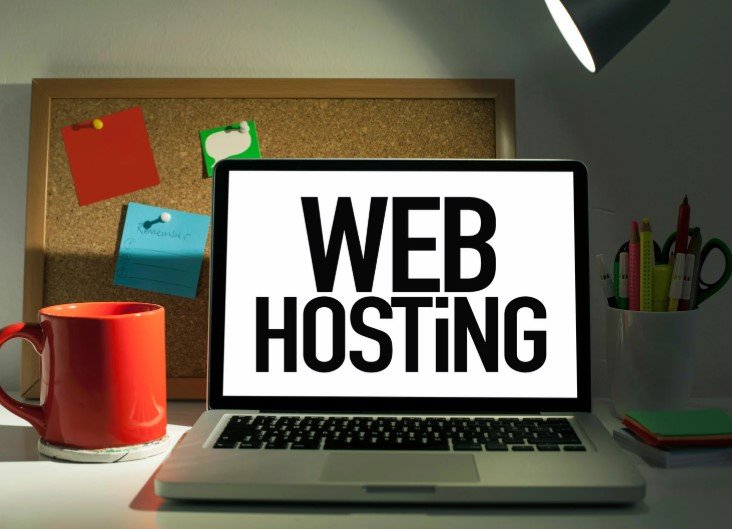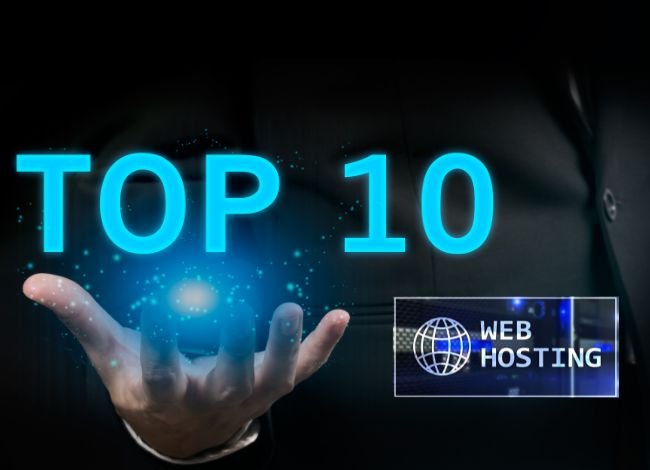In today’s digital landscape, websites face more cyber threats than ever before. Hackers, malware infections, and phishing attempts can compromise not only your data but also your reputation. For businesses and individuals who rely on their websites for income, customer trust, or brand visibility, strong security is no longer optional—it’s a necessity.
One of the most effective ways to protect your website is through secure hosting with daily malware scans. A secure hosting provider not only keeps your website online but also shields it from cyberattacks, unauthorized access, and malicious code injections. When paired with automatic daily malware scanning, this ensures that any threats are detected and removed before they can cause damage.
In this guide, we’ll break down what secure hosting really means, explore the critical features to look for, and highlight the best practices for keeping your website safe. Whether you’re running a blog, an online store, or a corporate site, the right hosting security strategy can give you peace of mind and keep your digital presence thriving.
What is Secure Hosting?

Secure hosting refers to a web hosting service that prioritizes website safety by integrating advanced protection measures. Unlike regular hosting that only focuses on uptime and server speed, secure hosting adds multiple layers of defense against cyber threats.
At its core, secure hosting ensures:
Confidentiality: Sensitive information such as passwords, customer data, and payment details remain private.
Integrity: Files and databases are protected from unauthorized modifications or malware injections.
Availability: Your website stays accessible and functional even under cyberattacks like Distributed Denial-of-Service (DDoS).
For example, a hosting plan that includes SSL certificates, firewalls, automated backups, malware detection, and DDoS mitigation can be considered secure hosting. With the rise of cybercrime, search engines like Google also give preference to secure websites. Sites using HTTPS, strong malware protection, and updated security measures are more likely to rank higher than unprotected sites.
Secure hosting doesn’t just protect your website; it protects your customers’ trust. A visitor who sees a “Not Secure” warning in their browser may never return. On the other hand, a site with SSL encryption, fast load times, and no security issues signals credibility.
What Security Features to Look for in Web Hosting Providers?
When choosing a web hosting service, you should evaluate more than just pricing and performance. Security features are the backbone of a safe website, and not all providers offer the same level of protection. Below are the most essential features you should look for in a secure hosting provider.
1. Software & Server Security
The first line of defense in secure hosting is the server environment itself. Hosting providers must ensure their servers run on updated operating systems, patched software, and hardened configurations.
Automatic software updates: Vulnerabilities in outdated PHP, MySQL, or Apache versions can easily be exploited.
Server hardening: Techniques such as disabling unnecessary ports, monitoring root access, and minimizing potential attack vectors.
Malware scanning tools: Built-in scanners that constantly check for malicious files or suspicious activities.
A provider that invests in strong server security helps reduce the chances of large-scale breaches.
2. Free SSL Certificate & Encrypted Connections
An SSL (Secure Socket Layer) or its successor TLS (Transport Layer Security) is a must-have for any modern website. It encrypts the data transferred between your server and visitors’ browsers, preventing interception of sensitive information like login credentials or credit card numbers.
Most reputable hosts now offer free SSL certificates via Let’s Encrypt. If your host doesn’t provide SSL for free, it’s a red flag. In addition, always ensure that HTTPS is enforced across your site. Not only does this build trust, but it’s also a confirmed Google ranking factor.
3. Automated Backups and Easy Restorations
Even the most secure sites can suffer from attacks or accidental errors. That’s why regular backups are non-negotiable. Look for a hosting provider that offers:
Daily or on-demand backups
Easy one-click restorations
Offsite storage for backups (to prevent data loss if the primary server is compromised)
With reliable backups, you can restore your site quickly without losing critical data or downtime.
4. DDoS & Malicious Traffic Protection
Distributed Denial-of-Service (DDoS) attacks flood your website with massive fake traffic, overwhelming the server and making your site inaccessible. Premium hosting providers include DDoS mitigation systems that filter out malicious traffic before it reaches your site.
In addition, intelligent traffic monitoring tools help detect patterns of suspicious activity, such as repeated login attempts or bot-driven requests. With proactive DDoS protection, your website stays online even during attempted disruptions.
5. Network Monitoring & Security Support
Cyber threats can happen at any time, which means your hosting provider should offer 24/7 network monitoring. This involves continuous scanning of traffic, connections, and server activity to detect vulnerabilities before hackers exploit them.
In addition, responsive security support is essential. If your website gets hacked, you want a hosting provider that can assist quickly with malware removal, file cleaning, and restoration. Many top-tier hosts even provide security guarantees—promising to fix compromised websites at no extra cost.
6. Content Delivery Network (CDN) Integration
A CDN (Content Delivery Network) not only speeds up your website by distributing content across multiple global servers but also improves security.
CDNs can block malicious IP addresses.
They provide layered DDoS protection.
Many CDNs include extra firewalls and caching to prevent suspicious requests from hitting your origin server.
Providers like Cloudflare or Sucuri CDN are often integrated into hosting plans to give your website both speed and security.
7. Web Application Firewall (WAF)
A Web Application Firewall (WAF) filters and monitors HTTP traffic between your website and the internet. It blocks common attacks such as:
SQL injection
Cross-site scripting (XSS)
Cookie poisoning
Brute force login attempts
Some hosting providers include a WAF at the server level, while others require you to install plugins or third-party services. Regardless, a WAF is critical for defending your site from automated bots and targeted attacks.
8. Server Location & Compliance
The physical location of your hosting server impacts both security and compliance.
Servers located in secure data centers with biometric access, surveillance, and redundant power supply are far less vulnerable to physical breaches.
Compliance with regulations such as GDPR (General Data Protection Regulation) or PCI-DSS (Payment Card Industry Data Security Standard) is vital for businesses handling customer data and payments.
If your website deals with sensitive financial or healthcare information, ensure the hosting provider is compliant with industry security standards.
Top 10 Best Hosting with Daily Malware Scan
Even with a secure hosting provider, website security requires active management. Hackers often target weak points such as outdated software, weak passwords, or unused plugins. By following these 10 proven practices, you can drastically reduce risks and ensure long-term website safety.

1. Back Up Your Website Data Regularly
Backups are your safety net. If your site is hacked, corrupted, or accidentally deleted, you’ll need a clean copy to restore quickly.
Use automated daily backups whenever possible.
Store backups offsite or on the cloud (separate from your hosting server).
Keep multiple versions (e.g., weekly, monthly) in case an infection goes unnoticed for days.
This ensures you can bounce back with minimal downtime and data loss.
2. Use SSL/TLS Encryption by Default
Running your website without SSL/TLS today is a huge mistake. SSL encryption:
Protects user data (login details, payment info).
Improves SEO rankings (Google prioritizes HTTPS sites).
Builds trust (modern browsers show warnings on non-HTTPS sites).
Always enforce HTTPS across your entire site—not just checkout or login pages.
3. Use SFTP Instead of FTP
Traditional FTP transmits data (including passwords) in plain text, making it easy for hackers to intercept. Switch to SFTP (Secure File Transfer Protocol):
Encrypts file transfers between your device and the server.
Prevents unauthorized users from sniffing credentials.
Works with most hosting providers and FTP clients like FileZilla.
This simple change adds a significant layer of security.
4. Remove Unneeded Programs & Plugins
Every extra plugin, theme, or script on your website is a potential backdoor for hackers. To minimize risks:
Uninstall unused plugins/themes immediately.
Choose tools with good reviews, regular updates, and active developer support.
Periodically audit your site and remove outdated scripts or software.
Less clutter means fewer vulnerabilities.
5. Periodically Change Passwords & Use MFA
Weak or reused passwords are one of the top causes of hacked websites. Best practices include:
Use strong, unique passwords for hosting accounts, databases, and CMS logins.
Change them every 60–90 days.
Enable Multi-Factor Authentication (MFA) wherever possible for an extra security step.
Even if hackers obtain your password, MFA can stop them from logging in.
6. Install and Set Up a Web Application Firewall (WAF)
As covered earlier, a WAF filters malicious traffic before it reaches your site. Many hosting companies offer WAF solutions, but you can also install third-party services such as:
Cloudflare WAF
Sucuri Firewall
They help block SQL injections, brute force attacks, and spam bots, keeping your site cleaner and faster.
7. Scan Website Files for Malware
Daily malware scans can detect:
Infected scripts injected by hackers.
Hidden backdoors inside themes or plugins.
Suspicious code in core files.
Most secure hosting providers offer automatic malware scans. If not, use tools like Wordfence (for WordPress) or SiteLock to monitor your files.
8. Run Constant Software Updates
Outdated software is a hacker’s best friend. According to industry reports, over 60% of hacked sites were compromised due to outdated CMS, plugins, or themes.
Update your CMS (WordPress, Joomla, Drupal, etc.) regularly.
Apply security patches immediately when released.
Enable automatic updates for minor fixes if possible.
This is one of the easiest yet most overlooked security measures.
9. Restrict Website Access for Unauthorized Users
Limit access to your hosting panel, admin dashboard, and sensitive directories. You can:
Use IP whitelisting for admin areas.
Limit the number of accounts with admin privileges.
Block bots and brute force attempts with login attempt limits.
The fewer people who have access, the fewer entry points hackers can exploit.
10. Use Additional Security Extensions
For CMS-based sites like WordPress, Joomla, or Magento, install reliable security plugins to add extra protection. Popular options include:
Wordfence (WordPress) – firewall + malware scanner.
iThemes Security – brute force protection + 2FA.
Sucuri Security – monitoring + blacklist alerts.
These plugins act as your security “guard dogs,” actively protecting your site from common attacks.
Are Certain Types of Hosting More Secure Than Others?
Not all hosting plans are created equal. The security of your website depends partly on the hosting provider’s infrastructure, but the type of hosting you choose also plays a critical role. Each type comes with its own strengths and weaknesses in terms of safety, control, and vulnerability.
1. Shared Hosting Server
What it is: Multiple websites share the same server resources (CPU, RAM, storage).
Security implications:
Pros: Cost-effective, beginner-friendly, and comes with basic security from the provider.
Cons: High risk of “cross-contamination.” If one website on the server is hacked, others can be affected. Limited security customization is possible.
Verdict: Best for small personal blogs or hobby sites, but not recommended for businesses handling sensitive data.
2. Dedicated Server Hosting
What it is: You rent an entire physical server for your website(s).
Security implications:
Pros: Maximum control, complete isolation, customizable firewalls, and no “noisy neighbors.” Ideal for high-security needs.
Cons: Expensive and requires strong technical knowledge or a managed service.
Verdict: Excellent for enterprises, financial institutions, and sites requiring top-tier security.
3. Virtual Private Servers (VPS)
What it is: A middle ground between shared and dedicated hosting. One physical server is divided into multiple virtual servers, each with isolated resources.
Security implications:
Pros: Stronger isolation than shared hosting, affordable compared to dedicated servers, and customizable.
Cons: Still hosted on a shared physical server—mismanagement at the provider’s end can pose risks.
Verdict: A solid choice for growing businesses, developers, and eCommerce sites that want good security without the high cost of dedicated hosting.
4. Cloud Hosting
What it is: Your website runs on a network of interconnected virtual servers across multiple data centers.
Security implications:
Pros: High redundancy (data mirrored across servers), scalability, and strong DDoS protection. Many cloud hosts provide advanced firewalls and monitoring.
Cons: Shared cloud infrastructure can still pose risks if the provider lacks strict security protocols. Misconfigured cloud setups are a frequent cause of breaches.
Verdict: Very secure if managed properly. Ideal for businesses with fluctuating traffic, SaaS apps, and websites that need global performance and reliability.
5. Managed WordPress Hosting
What it is: Hosting specifically optimized for WordPress, often with automated updates and security features.
Security implications:
Pros: Includes daily backups, malware scans, WAF, and automatic WordPress/plugin updates. Strong support team for WordPress-specific threats.
Cons: Only useful for WordPress sites. Limited flexibility if you want to install non-WordPress apps.
Verdict: One of the most secure options for WordPress users. Providers like WP Engine, Kinsta, or SiteGround are industry leaders.
6. Security for eCommerce Sites
What it is: Hosting tailored for online stores, often with PCI compliance and integrations for payment gateways.
Security implications:
Pros: Includes SSL/TLS, PCI-DSS compliance, malware scanning, and fraud prevention. Designed for safe transactions.
Cons: More expensive than basic plans, and you must still implement your own security best practices.
Verdict: Essential for online shops handling credit cards, PayPal, or customer data. Without secure hosting, eCommerce sites risk chargebacks, fines, and reputational damage.
Final Thoughts
Website security is no longer an afterthought—it’s a foundational requirement. Every day, thousands of websites are hacked due to outdated software, weak hosting security, or poor maintenance. The damage from a single breach can be devastating: stolen customer data, blacklisting from Google, loss of trust, and in many cases, permanent business closure.
By investing in secure hosting with daily malware scans, you dramatically lower these risks. A strong hosting provider acts as your frontline defense, offering critical features like:
- Server-level protection and software patching
- Free SSL certificates and encrypted connections
- Automated daily backups with one-click restorations
- DDoS mitigation and malicious traffic filtering
- Proactive malware detection and removal
- 24/7 monitoring and responsive security support
At the same time, you as the website owner must take responsibility by applying best practices: running updates, enforcing strong passwords, restricting access, and monitoring for threats. Security is not a one-time setup—it’s an ongoing partnership between you and your hosting provider.
Whether you’re running a small blog, a corporate site, or a full-scale eCommerce store, the combination of secure hosting + daily malware scanning + proactive user practices creates a nearly impenetrable barrier against modern cyber threats.
FAQs
1. Why is secure hosting important for websites?
Secure hosting protects your website from hackers, malware, and data breaches. It ensures your site runs on safe servers with strong encryption, backups, and constant monitoring, which builds trust with your visitors and improves your search rankings.
2. What does daily malware scanning do?
Daily malware scans check your website files for hidden viruses, malicious code, and suspicious activity. If threats are detected, they can be removed before causing data loss, blacklisting, or downtime.
3. Can I secure my site on a shared hosting plan?
Yes, but shared hosting is more vulnerable since multiple websites share the same server. If one site is hacked, others can be affected. It’s safe for small projects, but for businesses or eCommerce, VPS, cloud, or dedicated hosting is recommended.
4. Do I really need SSL for my website?
Absolutely. SSL/TLS encryption ensures secure data transfer between your site and visitors. Without it, browsers will label your site as “Not Secure,” which scares away users and lowers your SEO rankings.
5. What’s the difference between VPS and dedicated hosting for security?
VPS: Offers isolated environments on a shared server, affordable, and more secure than shared hosting.
Dedicated: Provides maximum control, full server isolation, and top security but at a higher cost.
Both are excellent for growing businesses, with dedicated hosting being the most secure option.
6. Is managed WordPress hosting more secure than regular hosting?
Yes. Managed WordPress hosting comes with built-in protections such as daily backups, malware scans, plugin updates, and firewalls. It’s designed specifically to secure WordPress sites.
7. What are the most common threats to websites today?
The top threats include malware injections, DDoS attacks, brute force logins, outdated software vulnerabilities, phishing redirects, and SQL injection attacks.



